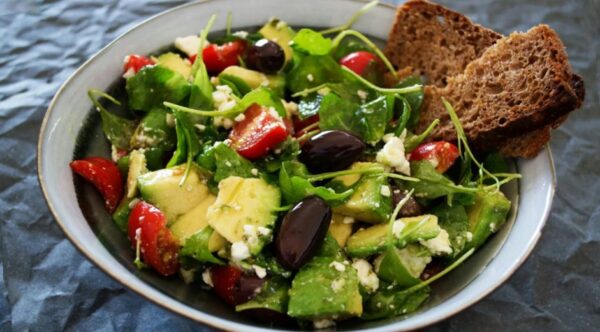Lifestyle
3 secrets to a perfect summer salad

Nothing pleases the palate in summer like a salad – garden lettuces drizzled with red-wine vinaigrette, heirloom tomatoes with basil and fresh mozzarella, or quinoa with peppers, cucumber and avocado.
Warm weather inspires simple, healthful fare, and a salad bowl is an ultimate showcase for the season’s rainbow of produce.
Local hoteliers from the Radisson Hotel Group share their secrets on how South Africans can perfect their salads this summer.
Variety, variety, variety!
When tossing your veggies together this summer, the importance of variety cannot be stressed enough.
Variety in texture
Make sure to include some type of crunchy ingredient in your salad. This will help to create a variety in texture for each bite.
Variety of flavours
Think about including a blend of flavours such as sweet, salty, umami, bitter and or spicy.
Variety of colours
When you look at your salad, you will want to see a variety of differently coloured vegetables to get a wide array of nutrients.
A good place to start when it comes to creating variety is to shop at your local farmer’s market. By doing so, you are guaranteed variety in your vegetables because the farmers sell only the produce in season. This means the vegetables available will change every time the season changes.
Lettuce get creative!
Next, it’s important to think outside the box. Remember, salads don’t always need to be made with raw vegetables. If you prefer cooked foods, you can create a variety of cooked vegetable salads. Or, you can do a mixture of cooked and raw vegetables.
When coming up with new creations it can be helpful to think about three distinct categories.
Fresh
Fresh salads are made by simply taking different fresh vegetables and layering them. Most people forget to add crunch (such as nuts, seeds or crunchy vegetables) and variety in flavour (such as sweet, sour, salty, umami, etc).
Cooked
To make cooked salads, you can roast or steam a variety of vegetables, then add a topping of your choice. Consider eggplant, bell peppers, zucchini, mushrooms, asparagus, sweet potatoes, butternut squash, broccoli, brussels sprouts and cauliflower.
Pre-made salads
Pre-made salads are similar to the salads in the deli. You can make a big batch at the beginning of the week, then plate it with leafy greens or in a bowl on top of brown rice or quinoa.
Salad in a jar
This method is not just reserved for Pinterest photos. It’s really simple, and you can make it at home. You can put your salads in jars at the beginning of the week, then before you want to eat them, add salad dressing, close the jars and shake them.
Remember to layer the heavier ingredients on the bottom. For example, chickpeas, quinoa or almonds would be on the bottom, and spinach, sprouts or radishes would be on the top.
Get your leek on!
As you can see, there are endless ways to create variety when it comes to preparing salads. Now it’s your turn to take action. Using the guidelines above, note down three new salad recipes that you have never made. Next, include the ingredients for one of the salads you put on your shopping list to make this week. Do the same for the following weeks. And be sure to use these for any hosting you do this summer. It will undoubtedly impress your guests.










